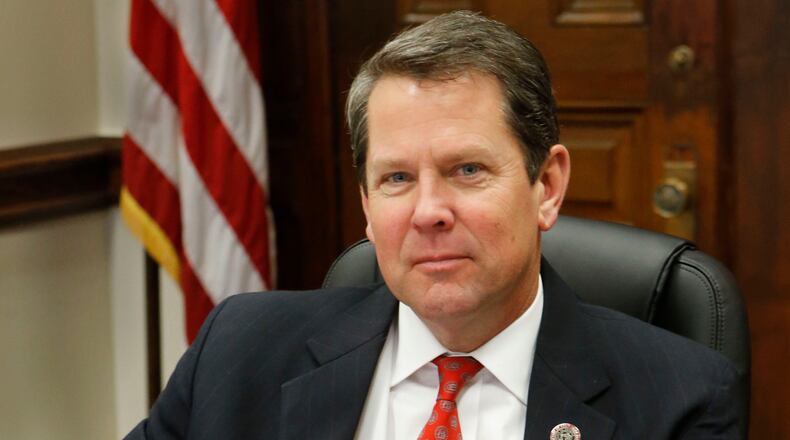A struggling seed-crushing business partly owned by Gov. Brian Kemp that was at the center of a years-long legal battle was recently sold to an agricultural giant for an undisclosed price.
Perdue AgriBusiness bought Hart AgStrong in August, saying in a disclosure that the company's two seed-crushing plants will help supply factories in Middle Georgia and Virginia.
Kemp quietly settled a long-running lawsuit days before he was sworn into office that was filed by a well-connected financier who claimed the Republican owed him $500,000 on an investment in Hart AgStrong. The confidential consent agreement was signed Jan. 11, just ahead of Kemp’s inauguration.
In a statement, Perdue Agribusiness President Dick Willey said the plants will help the firm “increase sales of our current and new specialty oils.” The Maryland-based firm is run by a family with no relation to Agriculture Secretary Sonny Perdue, a former Georgia governor, and U.S. Sen. David Perdue.
The financier, Rick Phillips, claimed in the 2017 lawsuit that Kemp failed to repay the loan he negotiated and guaranteed for Hart AgStrong, a seed processor based in northeast Georgia that struggled financially after an ill-fated expansion into Kentucky.
The lawsuit factored prominently in Kemp's campaign for governor, as Republican Lt. Gov. Casey Cagle and Democrat Stacey Abrams both seized on it to raise concerns about his financial viability and his business background.
A separate lawsuit targeting Kemp filed by other investors was settled for roughly $200,000 last year, but Phillips continued to press his case — and was not shy about criticizing Kemp.
"I expected him to keep his word, and he didn't," Phillips said in one interview. "That speaks volumes about Brian."
Phillips, a die-hard Republican, later endorsed Kemp after he defeated Cagle in the Republican runoff. He declined to comment Wednesday.
Financial records show that Kemp invested $750,000 in the company a decade ago and guaranteed $10 million in loans to Hart AgStrong — about twice the net worth he reported in state disclosures.
Documents show two loans, totaling $600,000, were due late last year. Others were set to mature this year.
Amid criticism from Democrats and watchdog groups, Kemp’s aides have said Hart AgStrong’s property and equipment back most of those loans, and that the governor was not the only investor who promised to pay if the company could not.
And Kemp said in an earlier interview that he wanted to “invest early in a company that was creating jobs and economic opportunity” and that he’s confident it will recover and repay the loans.
The new plant was pitched to local farmers in Kentucky as a lucrative way to diversify their crops using a portion of their land to grow plants not usually cultivated in the steamier Southern climate.
But it struggled with technical problems and flawed financial decisions that roiled the small Kentucky town where it's located. One local businessman told The Atlanta Journal-Constitution that people "feel betrayed" by its owners. At one point, the company tallied more than $2 million in missed payments to area farmers.
As the election approached, Kemp said he knew little about Hart AgStrong's operations. In a recent deposition, Kemp used variations of "I don't know," "I don't remember" or "I don't recall" at least 91 times when asked about the company's finances and operations.
Kemp distanced himself from the company as its financial problems mounted. He resigned from its board in August 2017 and his stake in the company steadily shrank. He reported owning a roughly one-quarter stake in 2010; his aides said earlier this year that he owned about 8%.
About the Author
Keep Reading
The Latest
Featured



